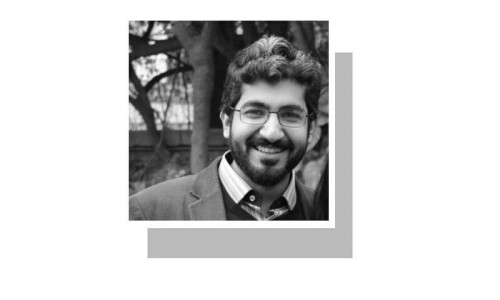We face today one of the worst bouts of political instability to have plagued us since 1947. Some states like India are stable with regular fair polls. Others see polls often, like Italy, yet the power transfer mode remains stable. Others are autocratically stable, like North Korea, but such deceptive stability usually ends in extreme and violent instability, as in Yemen. We see less violence, but have constant power transfers among elite factions, with even the mode of power transfer uncertain.
The roots of instability within states usually lie in their prenatal political or economic deficiencies. The British rued our economic viability, even though it was high among post-colonial states given the largest extent of irrigated land, a long coast, major port, big potential internal market, old links with nearby major economic regions and some natural resources. Industry, too, was set up fast by the 1950s by able traders and bureaucrats.
Our big prenatal deficiency was political. Most post-colonial states had existed as separate colonial or even pre-colonial states and thus had separate governance structures with a clear and old power centre. However, the two to three dozen postcolonial breakaway states, especially those which did not even have separate provinces earlier, had to create structures from scratch. Most breakaway states like Bangladesh had a high natural nationhood via identity oneness; ie, most of their population was from one race, faith and ethnicity. We lacked that despite a common faith, given our ethnic divides, and were also the only state bifurcated by 1,600 kilometres of a rival state.
Our freedom drive was led by elites, many of whom lacked a pro-poor ideology, did not mobilise the masses at the grassroots level, nor belonged to the areas that became Pakistan. The drive was also based on fears of future Hindu abuse rather than prolonged actual abuse, which may have welded a nation via common suffering. All this meant that non-political institutions like the elitist bureaucracy and military were much stronger than political ones at birth. Thus, Pakistan was perhaps the post-colonial state with the biggest prenatal political gaps globally, notwithstanding its high economic viability.
The challenge to elite non-political and political forces was crushed.
Had the field been developed enough then, a social sciences doctor taking a prenatal scan of the foetus may have easily predicted the political problems it would face later. They may not have advised aborting it, as the political gaps were surmountable given strong expert care. That care was devolved democracy to help develop a cultivated nationhood where disparate groups agree to live together given perceived benefits of size, etc, even in the absence of a natural nationhood, as in India too. Oddly, this was what the 1940 resolution said, under the push of progressive regional voices, but, predictably, elites in the freedom party made no effort during the seven years to 1947 or even later to operationalise the idea.
The most immediate outcome of these traits was an elitist freedom party that largely failed to provide post-birth leadership or stamp a legitimate authority over the disparate nation to develop democratic institutions and became quite irrelevant before non-political institutions. Leftist ideological and ethno-ideological parties challenging elite non-political and political forces to craft an egalitarian state were crushed.
The establishment manipulated politics to undercut ideological politics by imposing one abhorrent brand of politics after another, as even these forces soon challenged it. The first one was patronage politics of commercial or landed elites. When they became too big for their boots, those with the biggest boots in the land booted them out on the pretext of corruption and incompetence, forgetting that these parties thrived only due to its own crackdown on ideological politics. But instead of allowing ideological politics to return and challenge patronage politics in communities, the establishment encouraged ethno-populist (MQM) and extremist religious politics (TLP etc.) to counter patronage politics. Slowly those groups too went rogue. The last establishment-imposed political experiment gone awry was populist politics (PTI), whose aftermath we and it are still suffering.
Today, we face huge political instability as the establishment’s autocratic, elite patronage, ethno-populist, extremist, and populist politics clash with each other while ignoring the masses. The political instability has undercut our high economic viability. The way forward is for the establishment to end its support for these other brands and let ideological politics flourish to challenge and undercut them through grassroots mobilisation based on its egalitarian ideas.
The writer is a political economist with a PhD from the University of California, Berkeley.
Twitter: @NiazMurtaza2
Published in Dawn, March 7th, 2023














































Dear visitor, the comments section is undergoing an overhaul and will return soon.